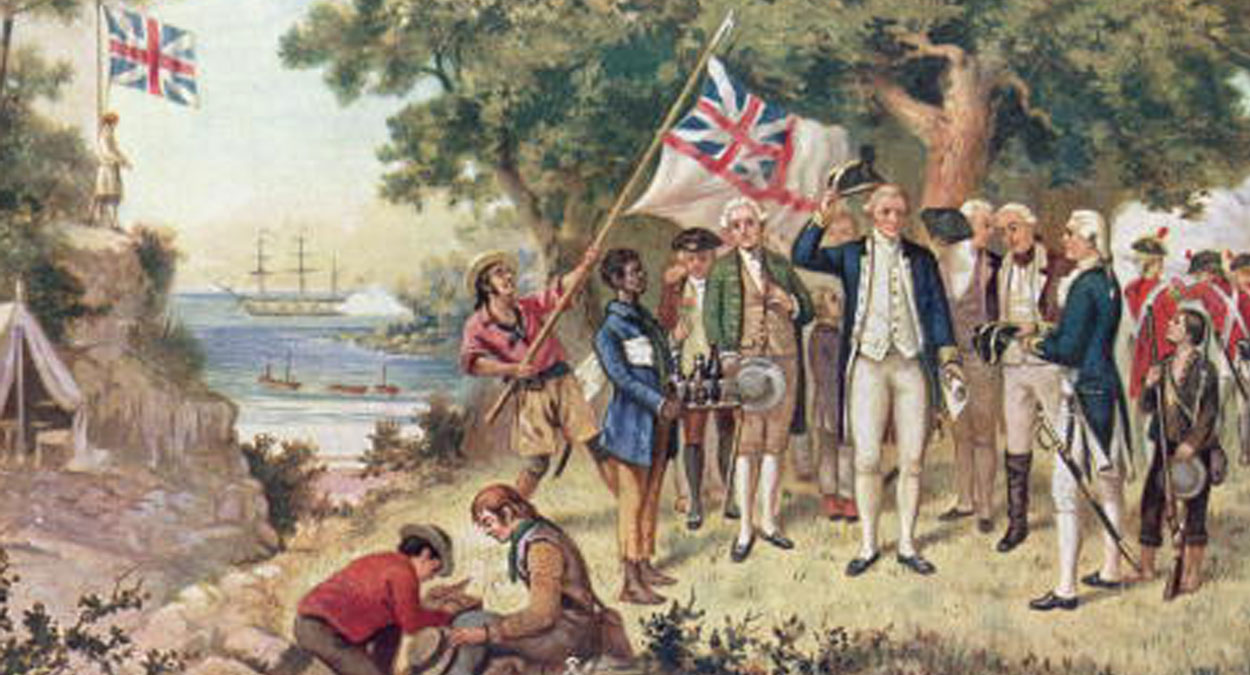War of words: Was Australia 'invaded' by Britain?
University guidelines on Indigenous terminology spark angry response from conservatives

A free daily email with the biggest news stories of the day – and the best features from TheWeek.com
You are now subscribed
Your newsletter sign-up was successful
Australia's colonial history is under the spotlight after a university issued a set of guidelines on the use of Indigenous terminology for its students.
The University of New South Wales was forced to reject claims it was "rewriting history" after a backlash from some conservatives.
What did it say?
The Week
Escape your echo chamber. Get the facts behind the news, plus analysis from multiple perspectives.

Sign up for The Week's Free Newsletters
From our morning news briefing to a weekly Good News Newsletter, get the best of The Week delivered directly to your inbox.
From our morning news briefing to a weekly Good News Newsletter, get the best of The Week delivered directly to your inbox.
Students have been advised to avoid saying Australia was "discovered" or "settled" by the British. Terms such as "invaded, occupied and colonised" are suggested instead.
It points to the fact that Aboriginal and Torres Strait Islander peoples were present long before British explorer Captain James Cook claimed possession of the east coast of the continent in 1770.
"Recognising the power of language, the terminology guide is designed as a resource to assist staff and students in describing Indigenous Australian peoples and their history and culture," said the university.
What was the reaction?
A free daily email with the biggest news stories of the day – and the best features from TheWeek.com
The Australian Daily Telegraph described the guidelines as being "a highly controversial rewriting of official Australian history" as legally, the country is considered to have been settled by the British.
Conservative radio host Alan Jones said the "so-called diversity toolkit" on Indigenous terminology "rubbish" would "restrict the thinking" of university students. "Prejudice and political correctness are anathema to genuine scholarship and learning," he told listeners.
In a filmed debate, News Corp columnist Sarrah Le Marquand said many Australians would be "uncomfortable" being referred to as invaders and that "getting too bogged down" in a debate about words was "polarising".
The university has rejected accusations it was dictating terminology to students. "The guide does not mandate what language can be used. Rather, it uses a more appropriate/less appropriate format, providing a range of examples", it said.
The guidelines did get some backing from Queensland Premier Annastacia Palaszczuk, however.
"For many years, Australian schools and Australian institutions have not told the truth about the way in which Australia was settled," she told the Brisbane Times.
"A lot of Indigenous people lost their lives, there were massacres and the truth always must be told."
Paul Daley, an expert on Indigenous Australian history, agrees. "It's not 'politically correct' to say Australia was invaded - it's history," he wrote in The Guardian.
Indigenous historian Jackie Huggins said the reaction from the Daily Telegraph and others was disappointing.
"We know this country has a colonial history and that certainly has been characterised by a devastating land dispossession, violence and unapologetic racism as well," she told ABC.
"We cannot deny our history. It's a history that's never fully been taught to us in our country."
-
 The ‘ravenous’ demand for Cornish minerals
The ‘ravenous’ demand for Cornish mineralsUnder the Radar Growing need for critical minerals to power tech has intensified ‘appetite’ for lithium, which could be a ‘huge boon’ for local economy
-
 Why are election experts taking Trump’s midterm threats seriously?
Why are election experts taking Trump’s midterm threats seriously?IN THE SPOTLIGHT As the president muses about polling place deployments and a centralized electoral system aimed at one-party control, lawmakers are taking this administration at its word
-
 ‘Restaurateurs have become millionaires’
‘Restaurateurs have become millionaires’Instant Opinion Opinion, comment and editorials of the day
-
 Epstein files topple law CEO, roil UK government
Epstein files topple law CEO, roil UK governmentSpeed Read Peter Mandelson, Britain’s former ambassador to the US, is caught up in the scandal
-
 Iran and US prepare to meet after skirmishes
Iran and US prepare to meet after skirmishesSpeed Read The incident comes amid heightened tensions in the Middle East
-
 Israel retrieves final hostage’s body from Gaza
Israel retrieves final hostage’s body from GazaSpeed Read The 24-year-old police officer was killed during the initial Hamas attack
-
 China’s Xi targets top general in growing purge
China’s Xi targets top general in growing purgeSpeed Read Zhang Youxia is being investigated over ‘grave violations’ of the law
-
 Panama and Canada are negotiating over a crucial copper mine
Panama and Canada are negotiating over a crucial copper mineIn the Spotlight Panama is set to make a final decision on the mine this summer
-
 Why Greenland’s natural resources are nearly impossible to mine
Why Greenland’s natural resources are nearly impossible to mineThe Explainer The country’s natural landscape makes the task extremely difficult
-
 Iran cuts internet as protests escalate
Iran cuts internet as protests escalateSpeed Reada Government buildings across the country have been set on fire
-
 US nabs ‘shadow’ tanker claimed by Russia
US nabs ‘shadow’ tanker claimed by RussiaSpeed Read The ship was one of two vessels seized by the US military